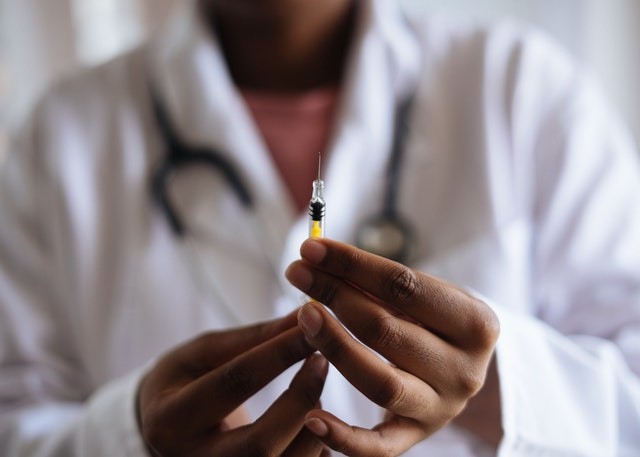COVID-19 Vaccine: Who Would Be Prioritized?
Vaccine. Such a sweet word and the most sought after in this time of pandemic. The National Institutes of Health (NIH) Director Francis Collins asked helped from the National Academy of Medicine last month to help them in developing guidelines as to who gets first the COVID-19 vaccine.

The World Health Organization (WHO) has recently announced that there are 24 candidate vaccines in clinical evaluation as of July 21. Meanwhile, while waiting for the results of these trials, many are also having questions on their minds as who gets the vaccine first once it becomes available.
Last month, NIH Director Francis Collins asked helped from the National Academy of Medicine to help them craft and develop guidelines as to who gets the first doses of the vaccine once it is available. Dr. Victor Dzau, the academy's president, told the NIH Director that his organization was up to the task, according to CNN News.
Dr. Victor Dzau said that this will allow the public to know that it is transparent and not political. He also wants to let Americans know how they did the guidelines and why they cannot prioritize everybody. These are just few of the answers while waiting for the vaccine.
Once the vaccine is approved, not all Americans will get it first. This will lead them to decide that the most vulnerable for the virus and essential workers will be prioritized. However, categorizing these groups are very difficult.
Dr. Collins told the Senate panel earlier this month, "People are a little uneasy about the government calling the shots here."
There are many things that experts need to consider in developing the guidelines. They have to consider the most vulnerable groups like those who lived in the assisted-living facilities including prison cells, meatpacking plants or those who work in close quarters, and how to assess Americans who have pre-existing medical conditions.
Meanwhile, the National Academy of Medicine hopes to address these concerns and have their recommendations publicly available in August or September.
Additionally, the Advisory Committee on Immunization Practices (ACIP), the second panel of vaccine advisers for CDC will also come up with their guidelines. However, it is not clear if the government will adopt the recommendation of one panel or take both into account in making their final guidelines.
ACIP convened last month through digital teleconferencing and decided as to who counts as essential workers. In their meeting, they included teachers in the priority list. Meanwhile, vaccinations for pregnant women were also put into consideration.
Dr. José Romero, the panel's chairman, said that "If we fail to address this issue of racial and ethnic groups as a high risk in prioritization, whatever comes out of our group will be looked at very suspiciously and with a lot of reservation."
However, even if the vaccines will be available and guidelines will be released soon, many are still skeptical about the safeness and effectiveness of the vaccine. A senior official at the Department of Health and Human Services said that people need to believe in the safety and efficacy of these vaccines.
Check these out!
Subscribe to Latin Post!
Sign up for our free newsletter for the Latest coverage!
© 2025 Latin Post. All rights reserved. Do not reproduce without permission.













